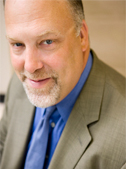© 2014 The Texas Lawbook.
By Jeff Bounds
Staff Writer for The Texas Lawbook
In a case that may affect at least one pending suit, a unanimous U.S. Supreme Court ruled Thursday that abstract ideas are not patentable, even if a computer helps automate the application of them.
In a case highly watched by the software industry, the justices ruled invalid patent claims of intellectual property controlled by Alice Corp., which had asserted infringement by CLS Bank International, the operator of a computerized network for settling currency exchange transactions. Alice’s patent essentially covers a computer program that performs the traditional role of an escrow agent, according to one outside expert.
“The principal issue facing the Supreme Court (Thursday) was whether Alice’s patent was nothing more than an abstract idea, which is not patentable, or alternatively a new and useful software invention, deserving of patent protection,” said Adam Sanderson, a partner at Reese Gordon Marketos in Dallas.

Abstract ideas can’t receive patent protection, although an improvement on an existing process can, Sanderson said.
“Software presents a special challenge to courts because it has not always been easy to recognize when a software engineer has done enough to ‘transform’ a mere idea into a new and useful invention,” he said.
The Alice case, he added, “is the Supreme Court’s latest effort to articulate a legal standard for recognizing when a computer program ceases to be an idea and becomes a new and useful invention, thus deserving of patent protection … Given the holding by the Supreme Court, software litigation attorneys representing clients in patent cases will want to emphasize the problem solving aspects of their clients’ software inventions.”
The Alice ruling will strengthen a patent case brought by a Reese Gordon client, Sanderson said.
“In the case of this particular client, he and his co-inventors (created) a computer program that revolutionized the way businesses are able to conduct electronic commerce and, specifically, how they are able to advertise products and services in real time, based on geographic location,” Sanderson said.
“The Supreme Court’s ruling today will only strengthen our client’s position because it confirms that the United States patent laws will continue to protect inventors who create truly innovative software,” he added.
The justices did not make new law in the Alice ruling. Rather, they provided additional guidance to trial courts on how to apply existing patent laws to software inventions, Sanderson said.
Thursday’s ruling in the Alice matter roughly parallels the justices’ take in a 2010 decision (08-964) called Bilski vs. Kappos. In Bilski, the Supreme Court ruled that abstract ideas could not receive patent protection.
In the Alice ruling, the justices “specifically declined to further define the meaning of a patent-intelligible abstract idea, and instead concluded that the Alice claims were not eligible for patenting for the same reason the Bilski claims were not eligible,” said Paul Skiermont, partner at Skiermont Puckett in Dallas. “As a result, today’s ruling did very little to clarify the standard for patent-eligibility of claims directed to software inventions.”
The winners from the Alice ruling will be “established software companies that can now reverse-engineer application software (more so than system level software) and then design and develop knock-off application software solutions without great fear of patent infringement,” said Bill Munck, named partner and founder of Munck Wilson Mandala in Dallas. “Theoretically, the established software companies will advance innovation through re-instantiation of these application software products with ever re-occurring improvements.”

The losers in the Alice case are “potentially, over time, any enterprise whose product is simply software, (arguably) very much the software start-up companies,” Munck said.
Other potential losers are some so-called “patent trolls,” meaning businesses or individuals who enforce patents without building or selling the widgets that their intellectual property covers. Trolls – or, less pejoratively, “non-practicing entities” – will be losers if they try to enforce “poorly-written and overly-broad patent claims directed to business methods which are very clearly at least fair game under Alice and Bilski,” Munck said.
Alice Corporation Pty. Ltd. vs. CLS Bank International et al., 13-298. The court’s opinion is here.
© 2014 The Texas Lawbook. Content of The Texas Lawbook is controlled and protected by specific licensing agreements with our subscribers and under federal copyright laws. Any distribution of this content without the consent of The Texas Lawbook is prohibited.
If you see any inaccuracy in any article in The Texas Lawbook, please contact us. Our goal is content that is 100% true and accurate. Thank you.
